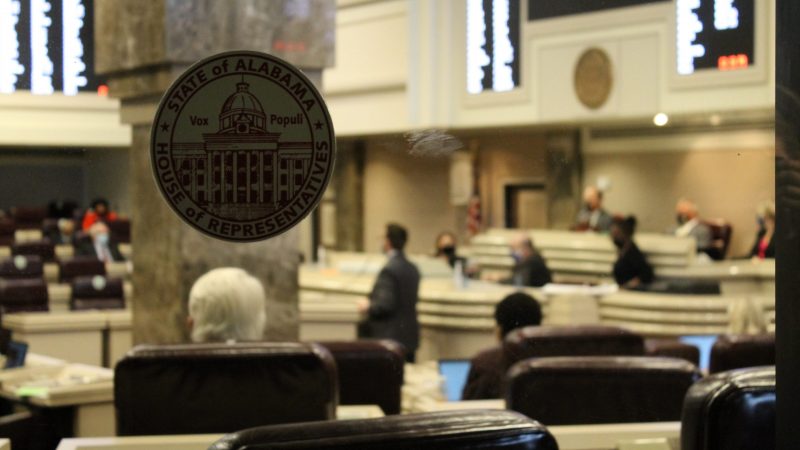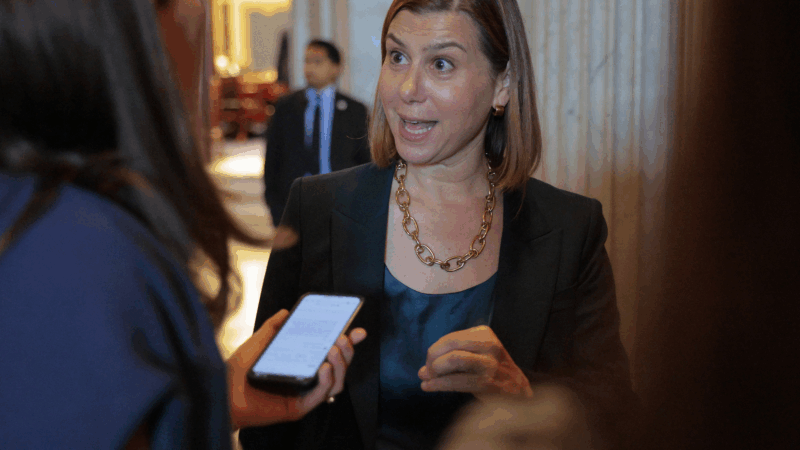Ivey calls special session on relief funds
MONTGOMERY, Ala. (AP) — Alabama Gov. Kay Ivey on Tuesday announced a midweek launch of a special session on how to use $771 million in pandemic relief funds, with lawmakers set to consider a plan to steer large sums to water and sewer projects, broadband expansion and healthcare costs.
The already anticipated special session will start Wednesday.
Legislative committees will hold a public hearing Wednesday on a draft proposal that would designate the money for spending categories such as broadband and the water and sewer projects. The bill specifies funding for previously identified high-need water and sewer projects, but largely puts state agencies in charge of deciding how to disperse the funds.
Alabama has $580 million remaining from the state’s first $1.1 billion installment from the American Rescue Plan. The state also has $191 million allocated through the America Rescue Plan’s Capital Projects Fund.
In her announcement, Ivey urged lawmakers to “direct these funds to meet some of Alabama’s biggest challenges like statewide broadband connectivity, water and sewer infrastructure, as well as investing funds in our hospitals, nursing homes and other health care providers.”
“We must be smart with these one-time, federal dollars by wisely investing -– not just casually spending them. This is not free money,” Ivey said.
The Republican governor, while calling a special session to spend the federal dollars, also criticized the Biden administration and the Congress that approved the funds.
“While states like Alabama are making record economic comebacks, Congress and the Biden White House are wanting our country to spend more and more federal dollars, and now we are tasked with allocating the American Rescue Plan Act funds. I have made clear, that unlike Washington, D.C., Alabama will be wise with these one-time federal dollars,” Ivey said.
Under the draft legislation, the state would use the $580 million to allocate: $225 million to water and sewer projects; $85 million for broadband expansion; $79 million to shore up the Unemployment Compensation Trust Fund; and about $170 million for various healthcare costs, including $80 million to reimburse hospitals and nursing homes for pandemic-related expenses and $30 million to assist rural hospitals.
The administration would get $7.8 million to reimburse the costs of reporting and auditing the use of the funds and $11 million would be used to reimburse county jails for housing state inmates during the pandemic.
A little more than half of the water and sewer funding would be used for previously identified high-need projects that will be prioritized under a ranking system created by the Alabama Department of Environmental Management. The other expenditures are not earmarked.
House Ways and Means General Fund Chairman Steve Clouse, a Republican from Ozark, said the plan addresses some of the state’s largest needs, ranging from healthcare costs to sewer infrastructure.
“We are taking care of a lot of issues, here,” Clouse said.
Clouse said an idea floated last week to use money for state parks was abandoned in favor of using more money for broadband expansion.
The state also has $191 million allocated through the America Rescue Plan’s Capital Projects Fund. The proposed legislation would put the Finance Department in charge of using the money for broadband expansion and other capital needs related to the pandemic.
Dr. Don Williamson, the president of the Alabama Hospital Association, said state hospitals took a $200 million financial hit during the pandemic because of expenses such as hiring traveling nurses to address staff shortages. Williamson said he was pleased to see efforts to allocate some money toward healthcare providers, but said they will need additional funds when the state gets the additional installment.
“We view this as a journey,” Williamson said.
A.J. McCampbell, a Democrat from Demopolis, said his priority is seeing funding for healthcare because of the financial strain that the pandemic has put on hospitals.
Rep. Chris England, a Democrat from Tuscaloosa, said he is pleased the proposal steers money to broadband expansion and water and sewer infrastructure. He added that the money has the potential to do some “real good” for the state, but criticized Alabama’s previous use of pandemic funds to build prisons.
Alabama came under criticism last year for using $400 million — nearly 20% of the state’s total $2.1 billion allocation from the American Rescue Plan — for prison construction.
“It is just a real negative reflection on priorities that we still haven’t matched up to the $400 million that we spent on prisons,” England said.
Updated 1/19/22 with quotes from lawmakers.
Scientists call another near-record hot year a ‘warning shot’ from a shifting climate
Scientists calculate that last year was one of the three hottest on record, along with 2024 and 2023. The trend indicates that warming could be speeding up, climate monitoring teams reported.
MLK concert held annually at the Kennedy Center for 23 years is relocating
Georgetown is moving Let Freedom Ring, its annual event celebrating the life of Martin Luther King, Jr., to the historic Howard Theatre in order to save money, the university said.
Democrat Elissa Slotkin says she is under investigation for video on illegal orders
Michigan Democratic Sen. Elissa Slotkin says she is under federal investigation for posting a video urging members of the military not to obey illegal orders.
Trump administration sends letter wiping out addiction, mental health grants
The Trump administration sent hundreds of letters Tuesday terminating federal grants supporting mental health and drug addiction services. The cuts could total as much as $2 billion.
Greetings from Acre, Israel, where an old fortress recalls the time of the Crusades
Far-Flung Postcards is a weekly series in which NPR's international team shares moments from their lives and work around the world.
Can’t decide what to read next? Here are 20 recommendations for your book club
You know that feeling when you finish a book and just have to discuss it with someone? That's a great book club book. Here are 20 tried-and-true titles that are sure to get the conversation started.






